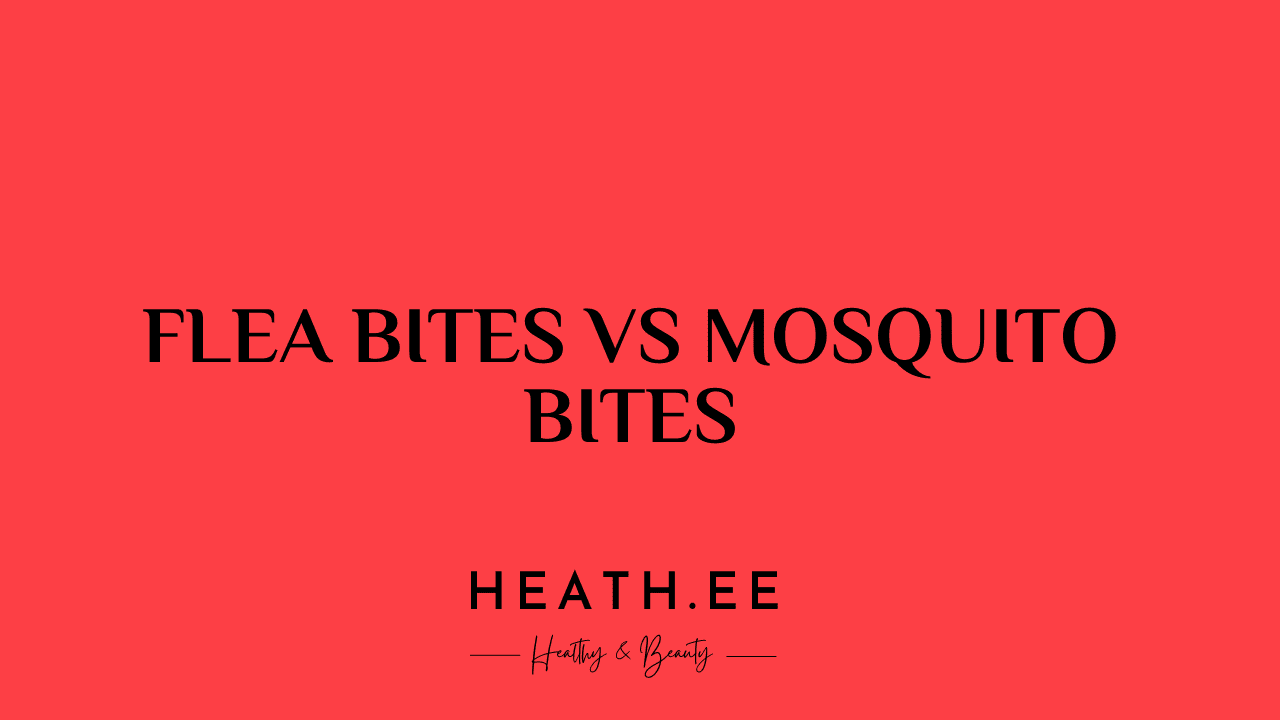When it comes to insect bites, flea bites and mosquito bites are two of the most common. While they may look similar, there are some key differences between the two that you should be aware of. In this blog post, we’ll discuss the differences between flea bites and mosquito bites and how to tell them apart.
What Are Flea Bites?
Flea bites are caused by fleas, which are small, wingless parasites that feed on the blood of their hosts. Fleas can be found on cats, dogs, rodents, and even humans. Flea bites appear as small, red bumps on the skin and are usually very itchy. They are usually found in clusters on the legs, ankles, and feet, as fleas tend to bite in these areas.

What Are Mosquito Bites?
Mosquito bites are caused by mosquitoes, which are small, flying insects that feed on the blood of their hosts. Mosquitoes are most active during the evening and night, and can be found in many different climates. Mosquito bites appear as small, red bumps on the skin and are usually very itchy. They are usually found in random places on the body, as mosquitoes tend to bite anywhere they can.
How to Tell the Difference Between Flea and Mosquito Bites
The best way to tell the difference between flea and mosquito bites is to look closely at the bite. Flea bites are usually found in clusters, while mosquito bites are usually found in random places. Additionally, flea bites tend to be slightly larger and more itchy than mosquito bites.

Treatment for Flea and Mosquito Bites
The treatment for flea and mosquito bites is similar and includes the following:
- Clean the bite with soap and water.
- Apply an over-the-counter anti-itch cream or calamine lotion.
- Take an antihistamine such as Benadryl.
- Apply a cold compress to reduce swelling.
If the bites are severe or if you experience any severe allergic reactions, contact your doctor immediately.
How to Prevent Flea and Mosquito Bites
The best way to prevent flea and mosquito bites is to take precautionary measures. These include:
- Wearing long-sleeved shirts and long pants when outdoors.
- Using insect repellent containing DEET.
- Keeping your home and yard free of standing water, which is a breeding ground for mosquitoes.
- Keeping your pets free of fleas by using flea and tick treatments.
What Are the Risks of Flea and Mosquito Bites?
While flea and mosquito bites are generally harmless, they can cause serious health risks in some cases. Fleas can transmit diseases such as plague and murine typhus, while mosquitoes can transmit diseases such as West Nile virus and Zika virus.
Are Flea and Mosquito Bites Dangerous to Children?
Flea and mosquito bites can be dangerous to children, as they can cause skin irritation and allergic reactions. It’s important to keep an eye on your child if they have been bitten and contact your doctor if they experience any severe reactions.
When to See a Doctor
If you experience any severe reactions to flea or mosquito bites, such as hives, swelling, or difficulty breathing, contact your doctor immediately. Additionally, if you experience any symptoms of a mosquito-borne illness, such as fever, headache, or body aches, contact your doctor right away.
Conclusion
Flea bites and mosquito bites may look similar, but there are some key differences between the two. It’s important to take precautionary measures to prevent flea and mosquito bites, as they can cause serious health risks in some cases. If you experience any severe reactions to flea or mosquito bites, or if you experience any symptoms of a mosquito-borne illness, contact your doctor immediately.



